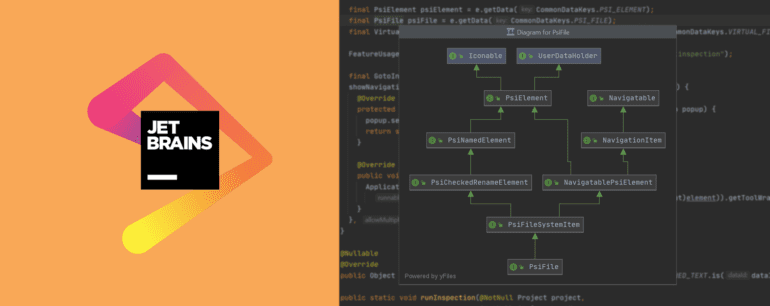TL;DR:
- JetBrains unveils AI Assistant in Early Access Program for IntelliJ-based IDEs and .NET tools.
- AI Assistant integrates generative AI and large language models (LLMs) into JetBrains’ products.
- Key features include AI Chat for code understanding, Documentation Generation, and Commit Message Generation.
- JetBrains plans to expand support for more AI model providers in the future.
- Access to the AI service is currently limited to territories where OpenAI operates.
- JetBrains emphasizes user privacy and data control.
- AI service is free during EAP cycle, but licensing and pricing models will be introduced later.
- User feedback is sought to enhance AI Assistant’s features and performance.
Main AI News:
JetBrains, the renowned software development company, has taken a monumental leap in the world of coding tools by introducing its groundbreaking AI Assistant. This transformative addition, now available in Early Access Program (EAP) builds for all IntelliJ-based IDEs and .NET tools and integrates powerful generative AI and large language models (LLMs) into JetBrains’ suite of products.
The AI Assistant seamlessly integrates into the core workflows of JetBrains IDE users, enhancing code understanding—a hallmark feature of JetBrains’ offerings. Powered by the state-of-the-art JetBrains AI service, the AI Assistant connects users to various LLMs, enabling them to access AI-powered features across multiple JetBrains products. Initially, the service supports OpenAI and includes a selection of smaller models created by JetBrains. As the future unfolds, the company plans to expand support to more providers, ensuring users have access to the best and most advanced AI models available.
Unveiling a plethora of impressive features, the AI Assistant’s AI Chat takes center stage. This groundbreaking capability allows users to engage in conversations with the LLM, seek guidance, and collaborate on tasks. For instance, developers can effortlessly request refactoring suggestions by merely selecting the method from the context menu: AI Actions > Suggest Refactoring. This elevates the assistance provided, streamlining the refactoring process and reducing errors.
Another compelling facet of the AI Assistant is the Documentation Generation feature, empowering users to generate comprehensive documentation for declarations using the LLM. Currently, this feature supports Java, Kotlin, and Python. When users rename a declaration in these languages, the AI suggests potential name options based on the declaration’s contents—a valuable feature known as Name Suggestions.
Moreover, the AI Assistant introduces an innovative Commit Message Generation feature. Within the commit message dialog, developers can now find a “Generate Commit Message with AI Assistant” button. By clicking this button, the AI Assistant receives the diffs of their changes, subsequently generating a descriptive commit message that reflects the alterations made.
However, certain limitations and restrictions must be acknowledged. JetBrains’ plans to support local and on-premises models, although the feature set for local models may have some limitations. Additionally, access to the AI service is currently limited to territories where the OpenAI service operates.
During the EAP cycle, the AI service is offered free of charge; however, JetBrains plans to unveil licensing and pricing models at a later date. This suggests that there will be costs associated with using the AI service once the EAP cycle concludes.
Notably, the availability of the JetBrains AI service may not be immediate for all users. The company intends to grant access to a select number of users initially, with additional users added to a waiting list once the maximum capacity is reached. Subsequently, more users will be gradually invited to explore the product in the coming weeks.
JetBrains places utmost importance on user privacy and assures users that their data is handled with the utmost care. When utilizing AI features, the IDE sends requests and code to the LLM provider. Regarding data collection and usage policies, the JetBrains AI service gathers two types of data related to AI feature usage: behavioral and detailed data. Importantly, both types of data collection are entirely under the user’s control. Data from the JetBrains AI service is transmitted to third-party language model providers (e.g., OpenAI), and such data processing occurs on the servers of these providers, adhering to their respective policies. Neither the user nor JetBrains has any control over this third-party data processing. JetBrains takes great care to ensure that the collected data is not utilized for training any machine learning models that generate code or text, nor is it shared with other users. Furthermore, the data is stored for a limited period, not exceeding one year.
Despite concerns about data privacy, developers have expressed a generally positive sentiment toward this technology, as evidenced by a recent LinkedIn poll. Bouke Nijhuis, CTO of CINQ ICT, affirmed the significance of AI coding assistants in his presentation at TeqNation & DevBCN, titled “The Battle of AI Coding Assistants”: “I think this is the future of programming. In the future, you will not have to write software alone; you can do it with your artificial pair programmer.”
Conclusion:
JetBrains’ introduction of the AI Assistant marks a significant step forward in the software development market. By seamlessly integrating generative AI and large language models into their IDEs and tools, JetBrains offers developers innovative capabilities such as AI Chat, Documentation Generation, and Commit Message Generation. The company’s commitment to user privacy and data control instills confidence among developers. As the AI service expands to include more providers, it is poised to shape the future of coding tools and revolutionize the way software development is approached. This breakthrough technology has the potential to enhance productivity, streamline workflows, and redefine the software development landscape.

